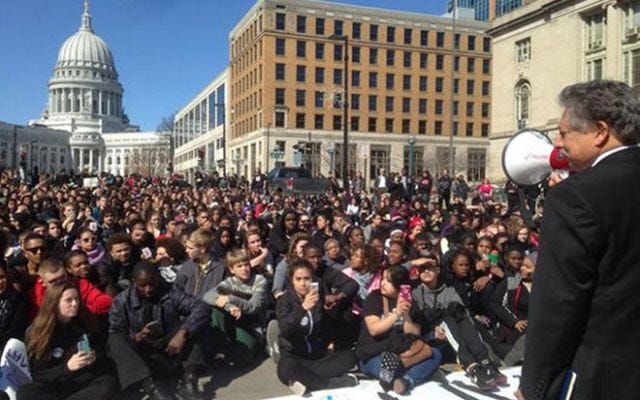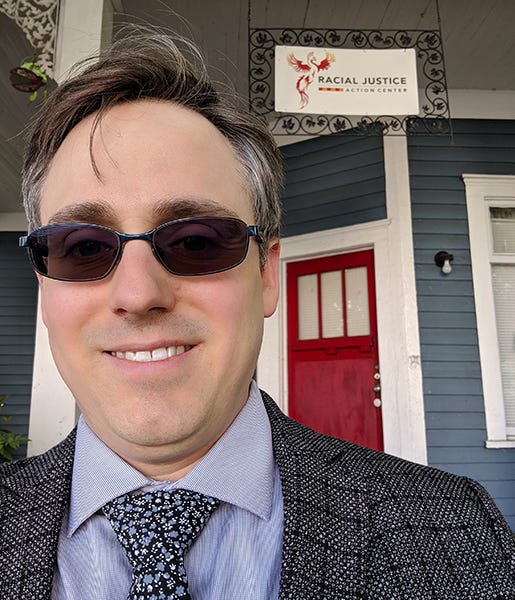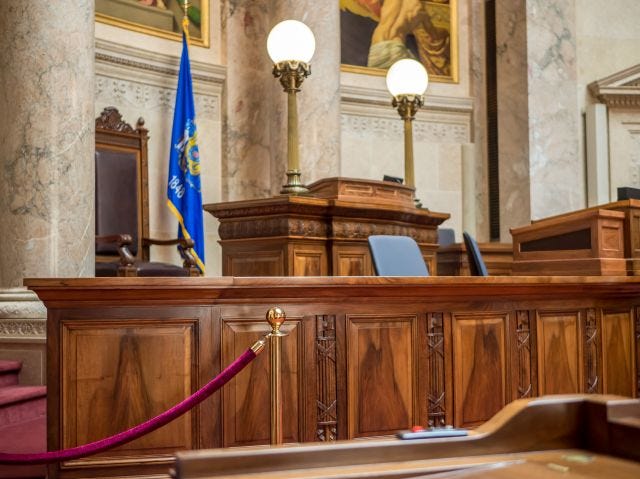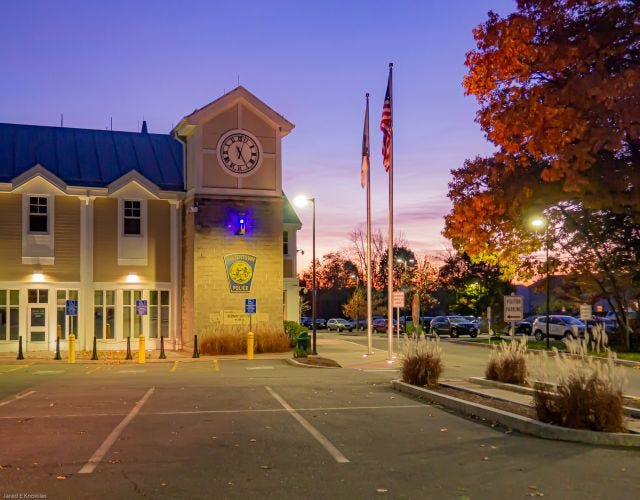Policing, Accountability, and What Comes Next
Friends and Colleagues,
tl;dr
If you are outraged about the murder of George Floyd and wondering what can be done, join me in pledging to take these steps and to recommit to these steps again in a few months:
Find the organization(s) in your city working on policing issues. Just Google “racial justice + my city” and you’ll find an organization. Join their mailing list. Donate. Amplify the voices of those impacted most by racism. Raise them up.
Write your legislators and demand that they pledge to hold police accountable. Police accountability cannot be left to cities and counties - states need to intervene. We need legislation to support that.
Practice calling out racism more often. It can feel charged or judgmental at first, but the murder of George Floyd and the police response to peaceful protests are the result of racist policies and racist actions. Name it.
To find out why these steps are important and to learn more about my commitment to them, please read on:
Yesterday, as I was cleaning and doing my weekend chores, I found myself feeling like most of you reading this probably feel: angry and upset about another police department executing another black person in another city. As people rise up across the country in an effort to say enough is enough I keep thinking about spring 2015 when police in the “ultra-liberal” city I lived in, Madison, WI, entered a private residence and murdered Tony Robinson less than 1 mile from where I worked. It stunned me. “How could this happen here?” And, when inevitably nothing was done to punish the department or the officer involved, my heart sank. Since then, I have been shifting more of my work toward police accountability. This has been motivated by a question at the intersection of what have become my two worlds: education and policing.

Will we hold cops as accountable as teachers?
Teachers are accountable to the public for their salary, for the training they receive, for the ways they discipline their students, and for the amount their students learn (“student growth” to use the term du jour). We demand this accountability because the teachers represent us - our commitment to the children in our community and our values.
Police also represent us and that same commitment to our community, and I’m outraged at what they are doing in our name. I’m also outraged how little accountability we ask of them. Try to find out how many arrests each officer in your town made last year. Try to find out how many crimes the police “solved”. More often than not, you can’t.
Cops are not accountable.
I know many of you follow me for my work on education and many of you work in education. You know that we know how to hold public employees accountable. We know what political and technical systems we need to make that work. We, as a society, can do it when we have the will to do so. This is not a question of how - this is a question of will.
Will cops be accountable?
The answer depends on us. I know many of you are looking for actions you can take. I’ve spent time the past few years working on this issue and want to offer some lessons I have learned. These are steps me and you, my peers - mostly white, mostly economically secure, mostly living in progressive places - must take so that things will change.
Before we begin, I need you know something that will sound radical coming from me:
We don’t need more data and statistics for this problem. We don’t need freakonomics or another ggplot. We need to listen and we need to demand action. I have learned that needing data to understand the realities of policing in America was a sign of my immense privilege. No one I have met who lives or works in policed communities needed data - they have lived with this reality for generations.
Now is the time to unmarginalize their voices by amplifying them and backing their solutions.
To do that, we need local, political, and social action. Here is what I am doing:
Help hold cops accountable locally
I’ve been working with local organizations to change police behavior in their cities. These organizations and people are heroes. Police accountability work attracts virtually no philanthropic support, yet in many poor neighborhoods in the U.S., it is one of the most important issues for residents. Over the past 18 months, I have learned that these organizations exist in almost every community, but they are marginalized - fighting for media coverage, funding, and political access.
Find your local organization working on police reform and community justice. You can find them by Googling “racial justice + my city” - it’s that simple. I found over 100 organizations just using this search approach. Join their mailing list. Give them money. If you have time and energy, volunteer. Here are some great organizations I’ve worked with in the past year:
Poder in Action (Phoenix, AZ)
Chispa (Santa Ana, CA)
PrYSM (Providence, RI)
Racial Justice Action Center (Atlanta, GA)
Wisconsin Voices (Milwaukee, WI)
Lawyers Committee for Civil Rights (chapters in many cities)

Here’s me visiting the RJAC last year. Remember traveling?
Support those amplifying these local organizations:
The Community Resource Hub gathers resources that community organizations can use to strengthen their advocacy and win police reform campaigns.
Color of Change works to support local movements across the country, and president Rashad Robinson is an excellent voice to follow.
The Communities Transforming Policing Fund at the Borealis Foundation is one of the few philanthropic efforts dedicated to police reform (not the broader and more popular criminal justice reform; full disclosure, I consult for them).
Let those who fund these organizations know that they are valuable. Especially now.

The main goal of much of this work is public divestment from police departments and reallocation of funds toward evidence-based alternatives. Phillip McHarris and Thenjiwe McHarris describe this movement and its goals in this powerful op-ed. Listen. Many of these alternatives to policing are covered in-depth in the End of Policing by Alex Vitale, which Verso Books has made freely available.
If you live in a town without an existing organization write your city council and your police chief. Ask them what steps they are taking to ensure that your police department is accountable, honorable, and equitable.

Demand legislation to hold cops accountable
Next, I am pledging to write to my elected representatives in the state legislature and Congress demanding they establish independent agencies to audit, investigate, and monitor police departments. (If you want, you can use the same letter I am using.) Cities and counties have proven they are not up to the task of accountability so we need a new approach. I will point elected officials to the California Police Scorecard and the excellent resources assembled by the team at Campaign Zero who created this model accountability framework. You can learn more about Campaign Zero in this article, which has some additional ideas you may find inspiring.
Hold ourselves accountable
Finally, I pledge to act socially. At the heart of the endless cycle of police violence is racism. Racism was here from the beginning, and wherever we fail to oppose it, it persists and flourishes. As Dr. Ibram X. Kendi says, it is not enough to be “not racist.” We must actively fight racism. That starts with listening to and amplifying the voices of those impacted by racism. Please share a few of my favorites:
Anand Giridharadas (IMHO: one of the best Twitter feeds around)
Andrea Ritchie (NYC based, who I’ve learned a lot from in a short period of time)

We have to look at our lives and challenge ourselves to find the ways we can fight racism. A few years ago I very intentionally set a goal to transform myself from a passive “non-racist” to an ally. This has meant changing the media I consume, seeking out new voices, and pushing myself to see and talk about the racist underpinnings of policies. It has been a challenging, awkward, and provocative intellectual journey. This article describes it better than I can and I urge you to give it a read.
And, for the list-lovers among you, I thought this list had some great ideas of new things I can do to support racial justice.
If this cycle is going to end, we have to pledge to make this fight a priority in our lives. And we have to keep this tragedy in our hearts long after the media cycle subsides. We have to carry this anger and frustration with us and tap into it when we vote, when we make political contributions, when we support charities, and when we eat, work, and play.
But to start, we just have to pledge to do one thing differently. That’s a good place to start.
Will you join me in demanding cops be held accountable?
With Gratitude,
Jared Knowles
P.S.
I will be resending this newsletter in a few months - ahead of the election - as a reminder to hold myself accountable to all of you, and perhaps to hold you accountable as well, for taking these actions and continuing this work.

